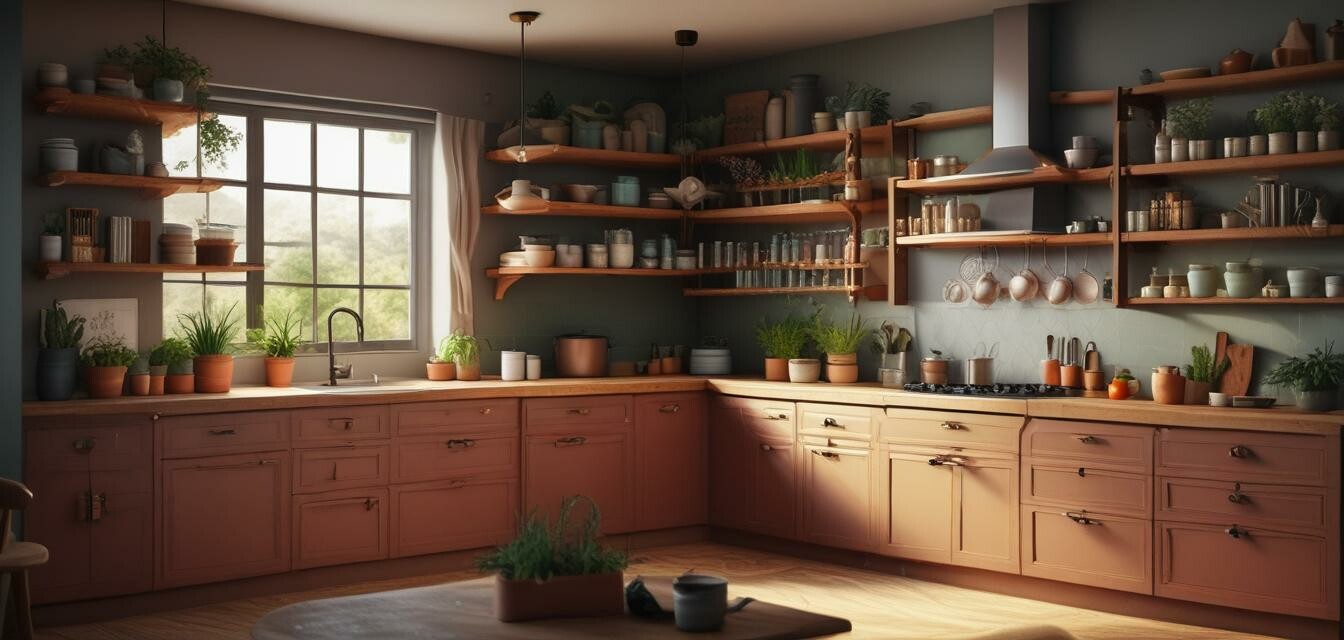
Exploring the Benefits of DIY Eco Projects
Key Takeaways
- DIY eco projects offer a sustainable way to enhance your kitchen.
- Engaging in eco-friendly crafts promotes creativity and resourcefulness.
- These projects can reduce waste and save money.
- Empower yourself to create unique kitchen accessories.
- Community involvement in DIY projects fosters connections.
In today’s world, eco-conscious homeowners are looking for creative, sustainable solutions for their kitchens. One fantastic avenue to explore is DIY eco projects, which not only help reduce your carbon footprint but also add a unique flair to your living space. From upcycling materials to creating homemade kitchen tools, these projects can contribute significantly to a greener kitchen.
What are DIY eco projects?
DIY (Do-It-Yourself) eco projects involve creating useful and practical household items using sustainable materials or recycling old goods. These projects can range from making your own compost bin to crafting reusable bags out of old fabric. The goal is to reduce waste and unnecessary purchases while promoting sustainability.
Benefits of DIY Eco Projects
- Reduce waste: Transforming items that might otherwise clutter your home into practical kitchenware can minimize waste.
- Save money: Creating your own kitchen items can be much more economical than buying new products.
- Promote creativity: DIY projects allow for personal expression and innovation in your kitchen space.
- Enhance your skills: Engaging in these projects can develop useful skills, such as sewing, woodworking, or crafting.
- Build community: Working on projects with friends or family encourages community spirit and strengthens relationships.
Popular DIY Eco Projects for Your Kitchen
Here’s a list of popular ideas that can help you transform your kitchen:
- Eco-Friendly Storage Solutions: Create your storage using recycled jars or wooden crates.
- Herb and Vegetable Gardens: Utilize old containers or wooden pallets to grow your own herbs and vegetables.
- Homemade Produce Bags: Use old t-shirts to sew reusable produce bags.
- Compost Bin: Build a simple compost bin using wooden pallets or repurposed containers.
- Upcycled Cutting Boards: Transform old wooden furniture into unique cutting boards.
Step-by-Step Guide to Creating a Kitchen Herb Garden
One of the simplest yet rewarding DIY eco projects is planting a kitchen herb garden. Here’s how you can get started:
- Choose Your Herbs: Select herbs that you frequently use, such as basil, rosemary, or parsley.
- Gather Materials: Use recycled containers, potting soil, and seeds or seedlings.
- Plant Your Herbs: Fill your containers with soil, and follow the planting instructions for each type of herb.
- Water and Care: Regularly water the plants and ensure they have adequate sunlight.
- Harvest and Enjoy: Once your herbs are ready, use them in your cooking!
Eco Materials for Your DIY Projects
Using the right materials is crucial when engaging in DIY projects. Here’s a quick table of eco-friendly materials you might consider:
| Material | Use | Benefits |
|---|---|---|
| Bamboo | Kitchen utensils | Renewable, biodegradable |
| Recycled glass | Cups and storage | Reduces landfill waste, durable |
| Old fabrics | Reusable bags | Prevents textile waste, versatile |
| Wood from pallets | Planting boxes | Recycling wood, rustic look |
| Compostable materials | Food storage | Environmentally safe, reduces plastic usage |
Engaging Your Family with DIY Projects
Encouraging your family to participate in DIY projects can not only bond you together but also foster a collective responsibility towards sustainability. Here are some tips:
Tips for Family DIY Sessions
- Choose simple projects that everyone can participate in.
- Set up a designated workspace to keep things organized.
- Make it fun! Encourage creativity and celebrate completed projects.
- Focus on teamwork, and assign roles based on individual skills.
- Document your progress with photos for future inspiration.
Conclusion
By embracing DIY eco projects, you can create a more sustainable kitchen that reflects your values and creativity. Whether you are making your own kitchen accessories or growing your herbs, engaging in these crafts contributes to a greener planet. Plus, it’s a rewarding way to spend time with family and friends. For more ideas, explore our Buying Guides to discover essential eco-friendly products that can complement your DIY efforts!
Additional Resources
For further reading on eco-friendly kitchenware, check out our other categories: Bamboo Kitchenware, Compostable Kitchen Tools, and Eco-Friendly Storage Solutions.



